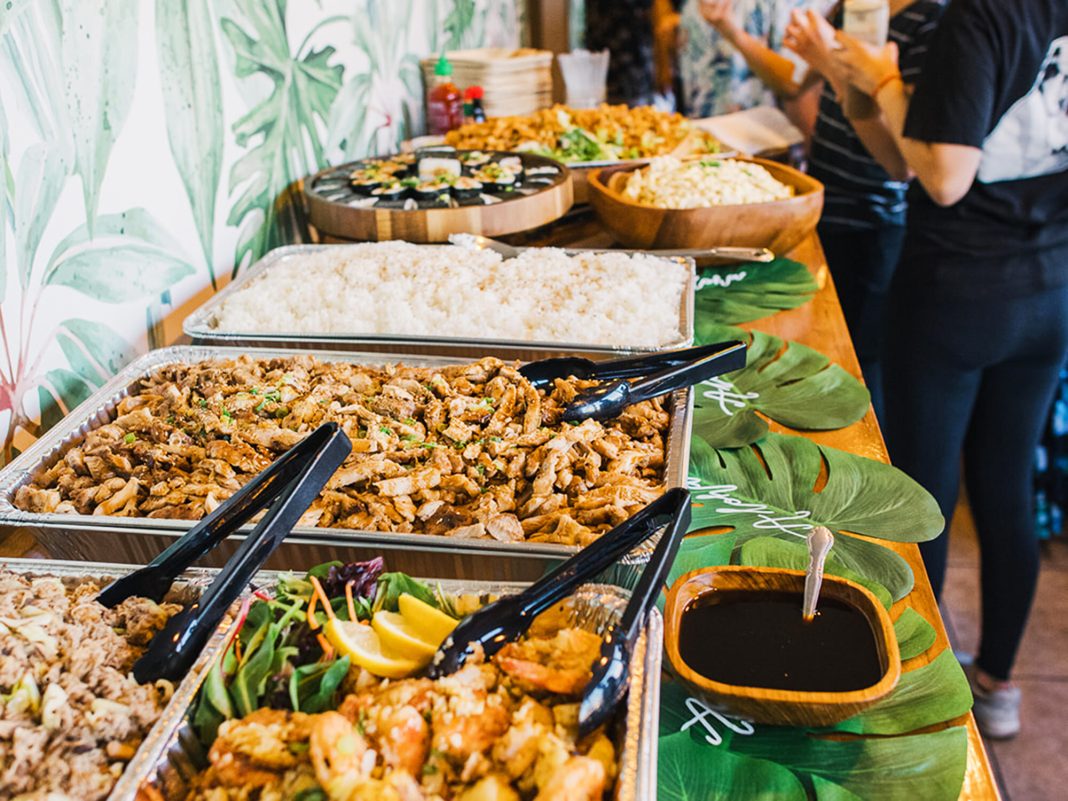Catering for large gatherings can be a daunting task, but with careful planning and organization, you can provide a memorable and enjoyable dining experience for all your guests. Whether you’re managing a corporate event, a wedding, or a community festival, knowing how to effectively cater to a crowd is essential. If you’re considering catering Brooklyn or any other location, here are some valuable tips for successfully feeding a large group.
1. Plan the Menu Strategically
Planning the menu is crucial when catering for a large number of people. Your menu should accommodate a variety of tastes and dietary preferences while being feasible to prepare and serve in large quantities.
Menu Planning Tips:
- Variety: Include a range of dishes, including vegetarian, vegan, gluten-free, and nut-free options to cater to different dietary needs.
- Scalability: Choose dishes that can be easily scaled up for large quantities without compromising quality.
- Seasonal Ingredients: Use seasonal ingredients to ensure freshness and manage costs effectively.
2. Estimate Portions Accurately
Accurate portion estimation helps avoid running out of food or having too much waste. Calculating the right amount of food based on the number of guests is essential for efficient catering.
Portion Estimation Tips:
- Guest Count: Confirm the number of guests in advance and adjust your quantities accordingly.
- Serving Sizes: Use standard serving sizes to estimate how much of each dish you’ll need.
- Buffers: Plan for a small buffer to account for unexpected guests or larger appetites, but avoid over-preparing.
3. Organize Food Preparation and Service
Effective organization of food preparation and service is key to ensuring a smooth and successful catering experience. Streamline processes to manage large quantities efficiently.
Preparation and Service Tips:
- Prep Ahead: Prepare as much as possible in advance to minimize last-minute work on the day of the event.
- Staffing: Ensure you have adequate staff to handle food preparation, serving, and clean-up.
- Stations: Set up food stations or buffet lines to facilitate efficient service and minimize waiting times.
4. Ensure Proper Food Storage and Handling
Proper food storage and handling are essential for maintaining food safety and quality, especially when catering for large gatherings.
Storage and Handling Tips:
- Temperature Control: Keep hot foods hot and cold foods cold to prevent spoilage and ensure safety.
- Safe Transport: Use insulated containers and equipment to transport food safely from the kitchen to the event venue.
- Hygiene: Follow strict hygiene practices to prevent contamination and ensure the safety of the food.
5. Consider Equipment and Supplies
Having the right equipment and supplies is crucial for managing large-scale catering. Ensure you have everything you need to prepare, serve, and store food effectively.
Equipment and Supplies Tips:
- Serving Equipment: Use chafing dishes, warming trays, and other equipment to keep food at the appropriate temperature.
- Disposable Items: Provide adequate disposable or eco-friendly plates, utensils, and napkins if necessary.
- Storage Containers: Have sufficient containers for storing leftovers and managing food during and after the event.
6. Manage Logistics and Timing
Coordinating logistics and timing is essential to ensure that everything runs smoothly on the day of the event. Proper planning helps manage the flow of food and service.
Logistics and Timing Tips:
- Timeline: Create a detailed timeline for food preparation, delivery, and serving.
- Coordinate with Venue: Work closely with the venue to understand their facilities and requirements.
- Service Flow: Plan the flow of service to avoid bottlenecks and ensure guests are served efficiently.
7. Provide Excellent Customer Service
Providing excellent customer service enhances the overall experience for your guests. Ensure that your staff is well-trained and attentive to guest needs.
Customer Service Tips:
- Training: Train staff to be professional, courteous, and responsive to guests’ needs.
- Assistance: Have staff available to assist guests with dietary questions and special requests.
- Feedback: Solicit feedback from guests to understand their experience and make improvements for future events.
8. Address Special Dietary Needs
Accommodating special dietary needs is important for ensuring that all guests have enjoyable dining options. Plan for and communicate these needs in advance.
Dietary Accommodation Tips:
- Communication: Request dietary information from guests ahead of time to plan accordingly.
- Labeling: Clearly label dishes that are gluten-free, vegan, or allergen-free to help guests make informed choices.
- Alternatives: Provide alternative options for common allergens and dietary restrictions.
9. Plan for Waste Management
Managing food waste is an important aspect of catering for large gatherings. Develop a plan for handling leftovers and minimizing waste.
Waste Management Tips:
- Leftovers: Arrange for the donation of excess food to local charities or organizations.
- Recycling: Use recycling bins for disposable packaging and encourage sustainable practices.
- Waste Reduction: Monitor and manage portion sizes and food preparation to minimize waste.
10. Evaluate and Reflect
After the event, take time to evaluate the catering process and gather feedback to learn from the experience and improve for future events.
Evaluation Tips:
- Feedback Collection: Obtain feedback from clients and guests on the food quality, service, and overall experience.
- Review Performance: Assess the performance of your team and identify areas for improvement.
- Continuous Improvement: Use insights and feedback to refine your catering practices and enhance future events.
Conclusion
Successfully catering for large gatherings involves meticulous planning, accurate portion estimation, effective organization, and excellent customer service. By following these tips, you can manage the complexities of catering for a crowd and provide a satisfying dining experience for all your guests. Whether you’re considering catering Brooklyn or another location, implementing these strategies will help ensure a smooth and successful event.










